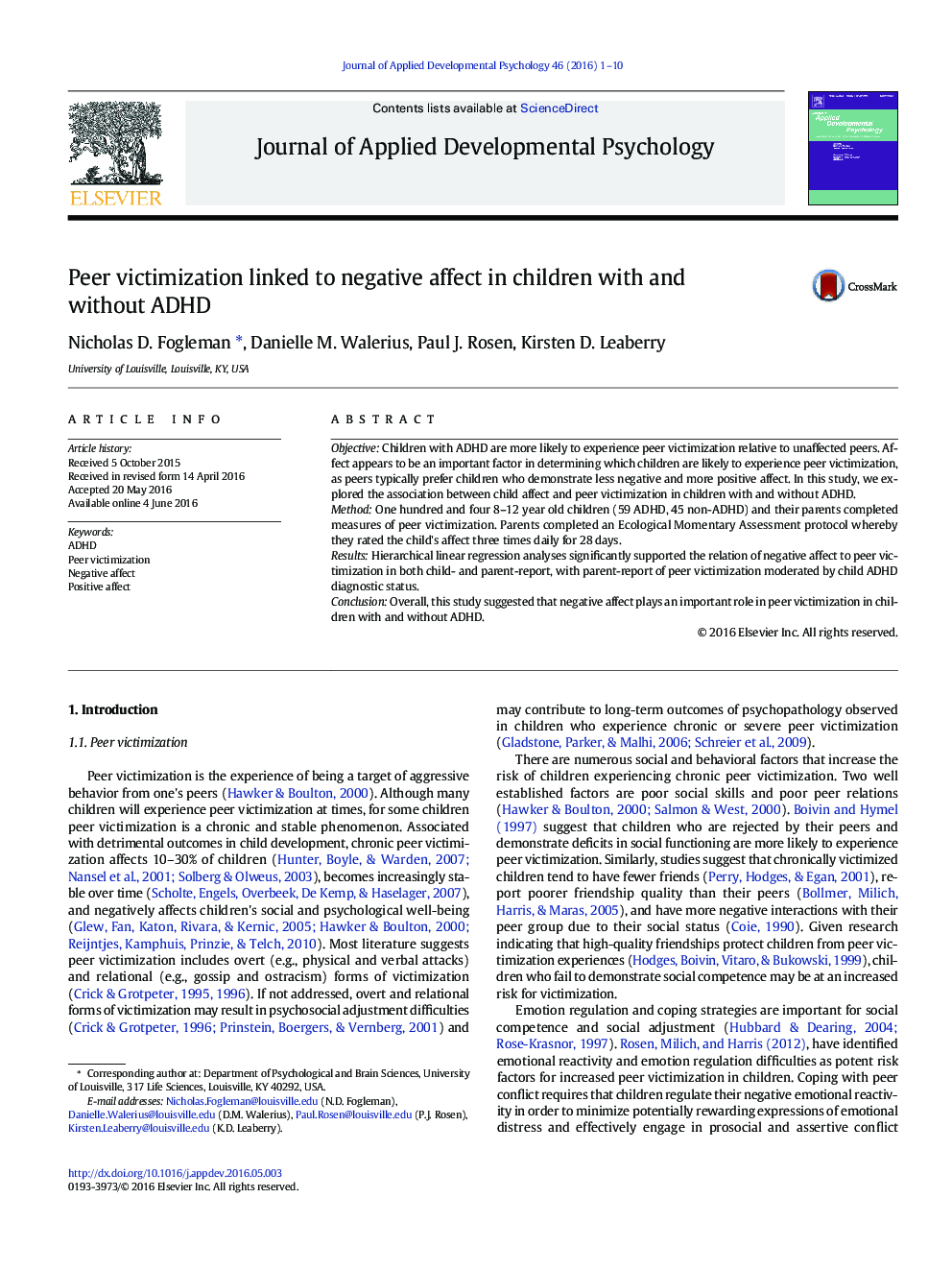| Article ID | Journal | Published Year | Pages | File Type |
|---|---|---|---|---|
| 359581 | Journal of Applied Developmental Psychology | 2016 | 10 Pages |
•Explored relationship between peer victimization and affect in children with and without ADHD•Children and parents were administered measures of peer victimization and child affect.•Negative affect was uniquely related to peer victimization in both child- and parent-report.•Parent-report of peer victimization was moderated by child ADHD diagnostic status.•Negative affect plays an important role in peer victimization in children with and without ADHD.
ObjectiveChildren with ADHD are more likely to experience peer victimization relative to unaffected peers. Affect appears to be an important factor in determining which children are likely to experience peer victimization, as peers typically prefer children who demonstrate less negative and more positive affect. In this study, we explored the association between child affect and peer victimization in children with and without ADHD.MethodOne hundred and four 8–12 year old children (59 ADHD, 45 non-ADHD) and their parents completed measures of peer victimization. Parents completed an Ecological Momentary Assessment protocol whereby they rated the child's affect three times daily for 28 days.ResultsHierarchical linear regression analyses significantly supported the relation of negative affect to peer victimization in both child- and parent-report, with parent-report of peer victimization moderated by child ADHD diagnostic status.ConclusionOverall, this study suggested that negative affect plays an important role in peer victimization in children with and without ADHD.
